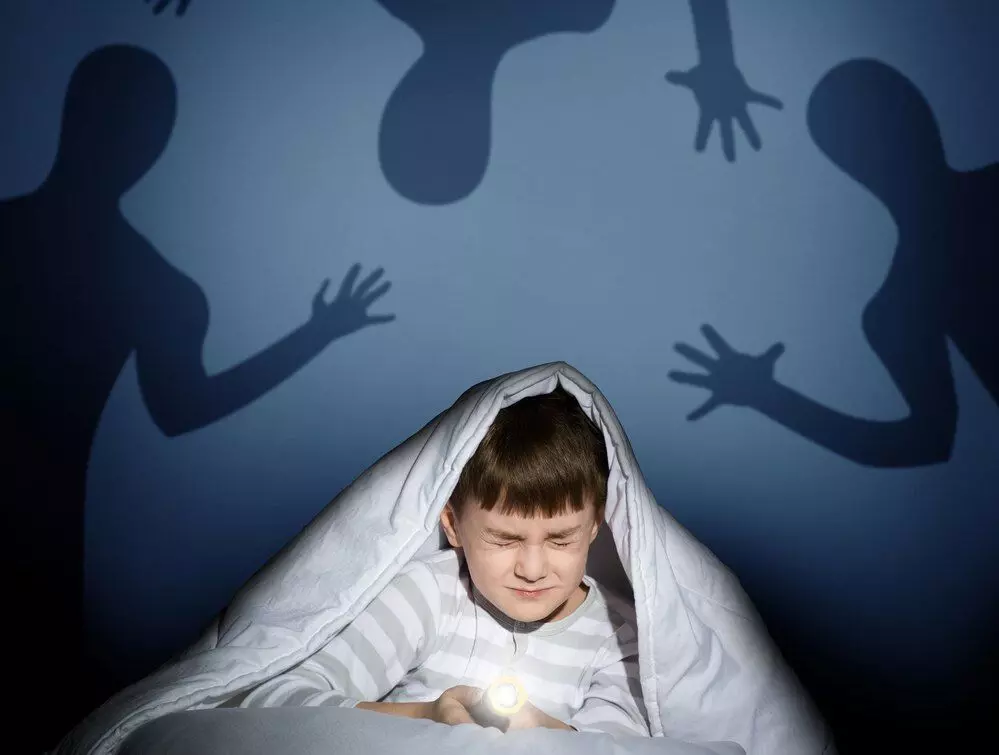How childhood nightmares are fueling risk of dementia among young adults
Children who have frequent nightmares are at an increased risk of getting Parkinson’s disease
By Sulogna Mehta Published on 29 March 2023 10:30 AM GMT
Representational Image
Hyderabad: Do you know, getting nightmares since childhood can have a far-reaching impact on your cognitive abilities and memory later in life?
Children who have frequent nightmares and disturbing dreams are at an increased risk of getting Parkinson’s disease and developing cognitive decline (including dementia) in adulthood, according to a study published in the journal eClinical Medicine.
Studies linked nightmares to dementia
An elevated risk of dementia and Parkinson’s disease had previously been linked to distressing dreams in middle-aged and older individuals. However, in this study, the researchers stated that children who had frequent nightmares between seven and eleven were almost twice as likely to exhibit cognitive decline by the age of 50.
According to experts from the University of Birmingham in the United Kingdom, this was the first study to show a link between traumatic nightmares experienced as a child and an increased risk of cognitive decline and Parkinson’s disease.
They stated that over the next three decades, the number of people with dementia is expected to rise manifold from 50 million to 150 million worldwide, while the number of people with Parkinson’s disease is anticipated to reach 14 million by 2040.
For the study, the team analyzed data from 6,991 children, of whom 267, or 3.8%, had cognitive impairment or Parkinson’s disease. The individuals were followed up within a certain time frame. Children who had frequent unpleasant nightmares had an elevated risk of developing cognitive decline or Parkinson’s disease (85%).
Probable causes
Around 25 % of sleep and 80 % of dream takes place in REM (Rapid Eye Movement) sleep while the remaining 75 % of sleep and 20 % of dreams occur in NREM (Non-REM) sleep.
Referring to the study, Neuropsychiatrist at KIMS Hospital Dr. Charan Teja Koganti explained: “None of the studies on this subject has elaborated on any definite reason for the connection between nightmares and dementia. But it is likely to have a link with a disturbed sleep cycle, especially a disrupted delta stage of sleep. The non-REM (Rapid Eye Movement) phase of the sleep cycle has three stages - the alpha, theta, and delta. Delta or deep sleep stage usually comprises 20 % of the sleep.”
Dr. Teja said during NREM sleep, neuroplasticity increases (reorganization of the structure and functions of the brain) due to which memory consolidation takes place, which in turn helps with better learning and task performance.
“Without proper delta sleep, these functions will not occur smoothly and over several years or decades, neuro-degeneration will start and manifest as diseases like dementia. The brain is made of neurons and all neurons have myelin sheath around them, which helps in the transmission of nerve impulses. But when neuro-degeneration or cognitive decline happens, the nerve impulses are not transmitted and there is a slow progression to dementia,” said Dr. Charan Teja.
“Because of nightmares and disturbed sleep, some changes take place in the brain, including slightly less cerebral blood flow due to lower oxygen uptake,” Dr. Teja added.
The doctor also cautioned that frequent nightmares should be taken seriously because these are disorders and require treatment. “Nightmares, sleepwalking, and sleep talking or parasomnia happen when the transition in the brain from REM to NREM doesn’t take place smoothly. Such people see nightmares wake up with palpitation, sweating, shaking, and shallow breathing and require treatment. So, if parents find their children getting nightmares, they should be brought to psychiatrists. Treatment involves sleep study and medication,” avers Dr. Charan Teja.
